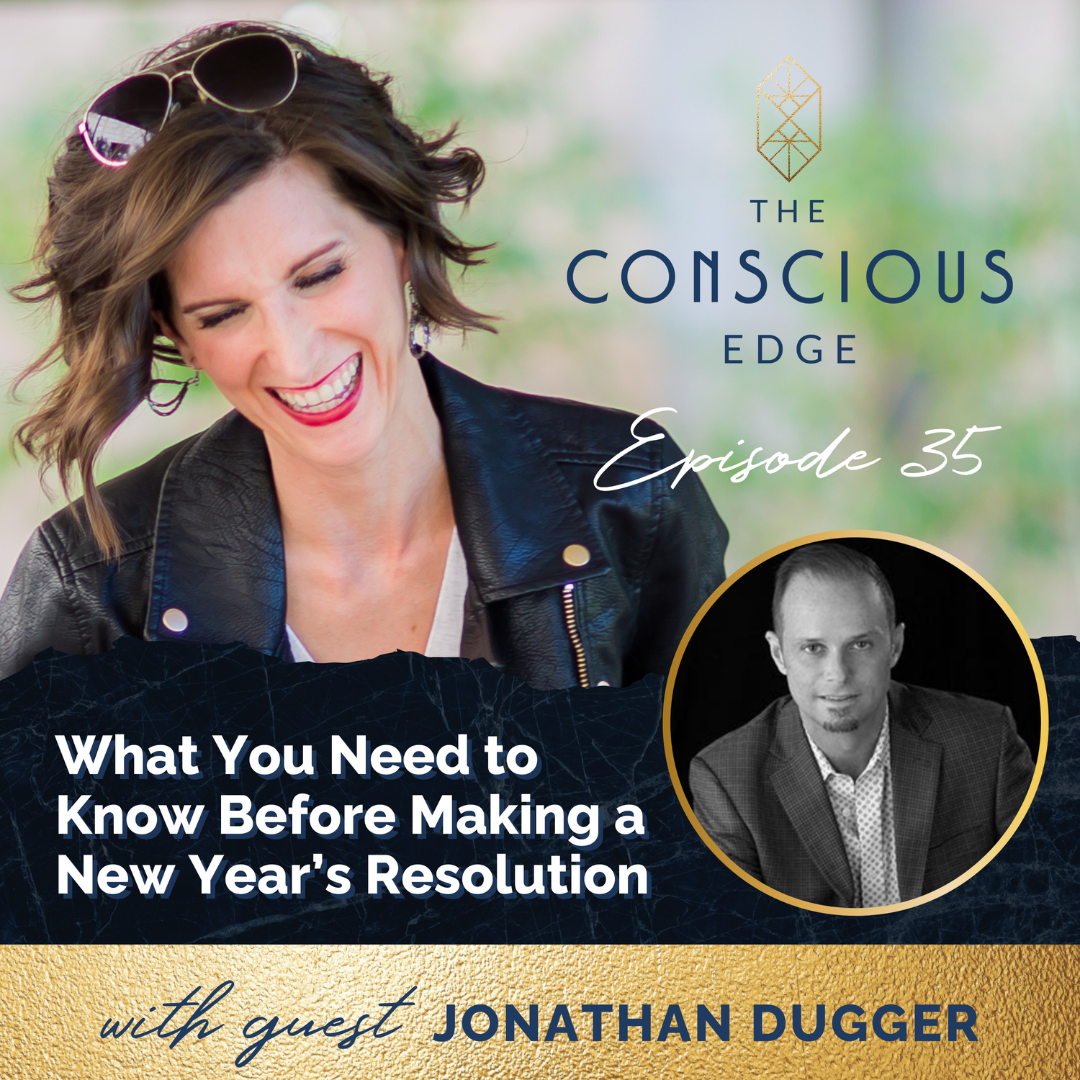Hi, I’m Alecia St. Germain, joined by my co-host Jonathan Dugger. As the New Year approaches, we’re diving into what makes resolutions stick or fall apart. If you’ve ever set a New Year’s resolution only to watch it fizzle by February, you’re not alone. If you are anti-resolution, or if you can’t wait to make a fresh start to the year, this episode is for you.
Side note: Jonathan is my dear friend, almost-always co-host, and a doctor of psychology. I was recently asked how he works with people and organizations. He explains that he does some therapy, but these days you’ll more likely find him coaching leaders in corporate settings or working with individuals who are looking to create an aligned life. He also does some business coaching for entrepreneurs looking to make an impact while living a life of meaning and purpose.
On to resolutions! Love them or not, we can’t deny the pull to want to start a new year with purpose and intention. Most New Year’s resolutions fail because they trigger an internal system designed to keep us safe, a psychological ‘immune system’ of sorts. Jonathan and I learned about this during training on the Immunity to Change (ITC) model. It explains why behavior that seems irrational often makes perfect sense when viewed through the lens of self-protection.
When we set goals like going to the gym five days a week, our brain may perceive this as unsafe because of an underlying belief like the fear of being judged or failing. This internal conflict is why we fall back into old habits, despite our best intentions.
The good news: it doesn’t have to be this way. Life is seldom an all or nothing exercise and that works with our goals and intentions too.
How to Make Goals That Stick
Understand Your Big Assumptions: Your goals and unconscious beliefs can’t coexist if they contradict each other. If you believe “I need to be available for everyone at all times,” committing to self-care will feel threatening. Examine these beliefs and redefine what’s possible.
Start Small and Be Specific: Set goals that align with your current life context. For example, instead of saying, “I’ll work out five days a week,” focus on, “I’ll take a 20-minute walk three times a week.” Make your goals realistic and build from there.
Shift from Resolution to Intention: Consider setting a guiding word for the year instead of rigid goals. My word for 2025 is strategic. I want it to help me create intentional, well-thought-out plans while leaving space for flexibility.
Practice Mindfulness Around Failure: Falling off track isn’t the end, it’s a signal to reassess. Use mindful reflection to ask, “What got in the way? What can I adjust?” This turns so-called failures into valuable learning moments.
If you want to set a New Year’s resolution and you find in three weeks you are not doing it, you are likely to have an immunity to change. You have something that says, this is unsafe for me to change. So, rather than beat up on yourself about it, you can decide if you want to do the work to figure out what you are believing to be true in the world that makes achieving this goal unsafe.
Your goal and your big assumption cannot co-exist. It’s okay to walk from the goal if pursing it feels unsafe. Achieving lasting change requires more than just willpower. It demands self-awareness and a willingness to question long-held beliefs.
Look at this new year as an opportunity for a fresh start. Think of it as a whole year’s worth of opportunity to grow, to do better, to be mindful. It’s a clean page ready for you to step out of judgment and focus on growth and the things that matter most to you.
Here’s to a mindful, intentional, and purpose-driven new year. Happy 2025! Sending you so much love and be well!
Resources:
Episode 6 – Why You Self-Sabotage
Redefining Success Retreat 2025 (a couple of spots are still available!)

